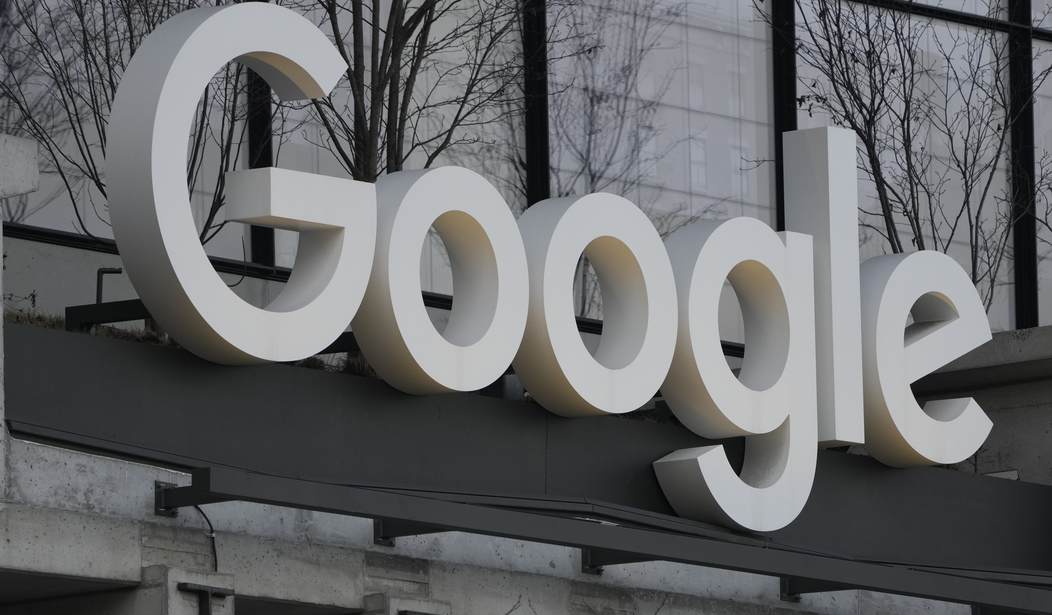You know that a company has truly gotten massive when its name becomes a verb. That’s what happened to Google, which aside from being a gigantic technology firm, is also the most common word used to generally describe the act of searching the internet. It’s a monopoly by any definition, and it just got smacked down by a federal court for abusing that position. Put that together with a victory against a cabal of advertisers who colluded to freeze certain platforms out of the marketplace, and it’s been a rough stretch for monopolies who try to illegally control speech and the flow of information.
A federal judge handed down a seismic decision earlier this month that Google illegally monopolized the internet search market by arranging to be the default search engine for almost all device manufacturers or mobile carriers. The judge further ruled that Google illegally monopolized the advertising space next to its search results. The case represents not just cracks, but jagged canyons in Google’s previously impenetrable dominance in controlling information. They found out that they can’t rig the search market to exclude their competitors anymore.
This is tremendous news for Rumble and other platforms, naturally, and it’s also great for advertisers, because rates will drop as more of the market has been opened up. And it’s good for our content creators because more advertising revenue will be flowing in their direction.
In the wake of all this, it seems clear that for such a gargantuan company, Google is not very confident in its ability to succeed if its competition is even allowed on the playing field. That’s why Rumble has sued them twice for monopolistic practices.
First, we accused them in 2021 of what’s called self-preferencing, that is, illegally favoring YouTube, which it owns, in search results and Android phones to the detriment of other video platforms like Rumble. That lawsuit is currently in expert discovery after Google tried – and failed – to have it dismissed.
Recommended
And then most recently in May, Rumble sued Google and its parent company, Alphabet, for glaringly anti-competitive practices in the digital advertising market. Google so monopolizes the entire system that it represents both ad buyers and sellers, while also running the exchange in which they all make their advertising deals.
If we are successful in these cases, which we aim to be, it will mark a victory for the free flow of information as part of Rumble’s mission of fighting for free expression. When such titans are able to stamp out their competition with illegal practices, then freedom of expression, freedom of thought, and individuality will wither away and die. Rumble exists to make sure that this never happens.
These are all reasons why Rumble also has joined Elon Musk’s social media platform X to take on another fight in this long war. In separate lawsuits, we’re going after a cartel of advertisers and agencies who conspired to withhold advertising revenue from Rumble, X, and other digital platforms.
The conspiracy centered around an initiative called the Global Alliance for Responsible Media (GARM), created by the World Federation of Advertisers (WFA), that established arbitrary standards for the content on digital platforms where its members may want to advertise. GARM then used those one-size-fits-all standards to perpetrate an advertiser boycott against Rumble and other platforms. GARM had a vast reach because it counts the six largest ad agency holding companies among its members, including another defendant, WPP.
Like other anti-competitive practices, this collusion hurt platforms like Rumble, content creators who couldn’t access revenue that was blocked, and advertisers who have been forced to pay more. All of this was to the benefit of legacy media outlets, who benefited from Google steering search traffic to them while competing platforms like Rumble were blacklisted.
In what is certainly not a coincidence, the WFA announced it was shutting down GARM just 48 hours after Rumble and X filed our suits in federal court, claiming that as a non-profit entity it did not have the resources to continue operation. This is difficult to believe, however, given the vast resources of the companies that created GARM in the first place. Nonetheless, the lawsuit continues.
And regardless of the reason for GARM’s demise, it’s obvious that through the mere act of filing this latest lawsuit, we already have succeeded again. Though the fight for freedom on the internet – in speech and in commerce – is ongoing, the tide feels like it’s turning.
For a long while in the battle for a free internet, it seemed unlikely that anyone could challenge companies that had grown so large that their names had become verbs. But at Rumble, we’re not afraid of the fight. We’re taking it right to them and we’re winning.
Chris Pavlovski is the founder and Chief Executive Officer of the video sharing platform and cloud services provider Rumble.

























Join the conversation as a VIP Member